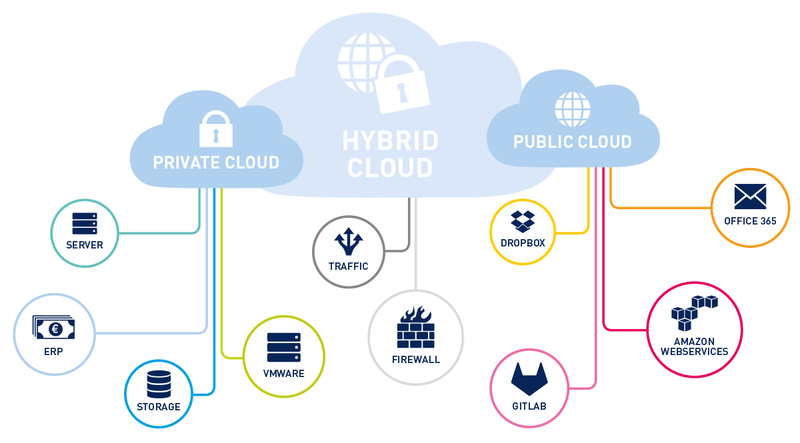So what is cloud computing?
In this article, I will try to explain what cloud computing is. To tell about its applications, possibilities, advantages and disadvantages.
“Cloud computing is just a service. Suppliers provide give us with servers, storage, databases, networks, software, tools for building analytical services as well as third-party services from the so-called marketplace. These services are provided to us via the Internet browser.”
Simply put, a public cloud is a vast data center, one that we know from our company’s solutions, which has such resources as CPU, RAM or storage. Due to the use of virtualization, automation tools, physical resource management and tools for the presentation of (frontend) services, it allows providing us with a simple customer panel. With it, customers can run hundreds of services in just a few minutes, ranging from virtual machines to very complex analytical services such as ML and AI.
“Line-of-business leaders everywhere are bypassing IT departments to get applications from the cloud (also known as software as a service, or SaaS) and paying for them like they would a magazine subscription. And when the service is no longer required, they can cancel that subscription with no equipment left unused in the corner.”
Daryl Plummer,
Managing Vice President and Distinguished Analyst at Gartner
Applications
Cloud computing can be applied to countless variations of services requiring communication, be it between people or machines. You may not realize, but you’re probably more or less using cloud computing right now. If you use e-mail, document editors, watch movies or TV, listen to music, play games, or store photos and other files, chances are that these services are provided using cloud computing. The most famous services using public cloud computing are Office365, Gmail, Allegro, Clash of Clans; and I don’t know if you’re aware, but the Winter Olympics in Sochi were broadcast using the Microsoft Azure public cloud.
The most famous providers of public clouds on the Polish market are:
Microsoft Azure, Amazon Web Services, e24cloud, Oktawave, Google clud platform, IBM Cloud, Digital Ocean, Aruba cloud.
Below are some examples of cloud computing applications
Cloud computing types
Not all clouds are the same, and not all types of cloud computing are appropriate for everyone. To be able to offer a solution that suits your needs, several different models, types and services have been developed.
First, you need to determine the type of cloud deployment or the cloud computing architecture in which your cloud services would be implemented. There are three different ways to deploy cloud services: public cloud, private cloud, and hybrid cloud.
Cloud deployment types: public, private, and hybrid

Private cloud, or data center, is best known and most commonly used. It is an infrastructure created and maintained by the company’s employees. It is usually used to maintain business systems and apps.
Public cloud, unlike private cloud, is managed by an external provider. As a customer, you cannot directly manage the network or server infrastructure. The primary features of the public cloud are its scalability, as well as the availability and variety of business services depending on the current ever-changing needs of the company.
The third model of working with the cloud – and we know it is the most willingly and intensively used – is the hybrid solution. It is a form that combines corporate private cloud services with public cloud services such as Microsoft Azure, Amazon Web Services or Google Cloud Platform. As a result, we expand our own stable infrastructure with the advantages of scalability, high availability, and variety of services per the company’s needs.
“Hybrid cloud is a cloud computing environment that uses a mix of on-premises, private cloud and third-party, public cloud services with orchestration between the two platforms. By allowing workloads to move between private and public clouds as computing needs and costs change, hybrid cloud gives businesses greater flexibility and more data deployment options.”
Quoted Whatis.com





